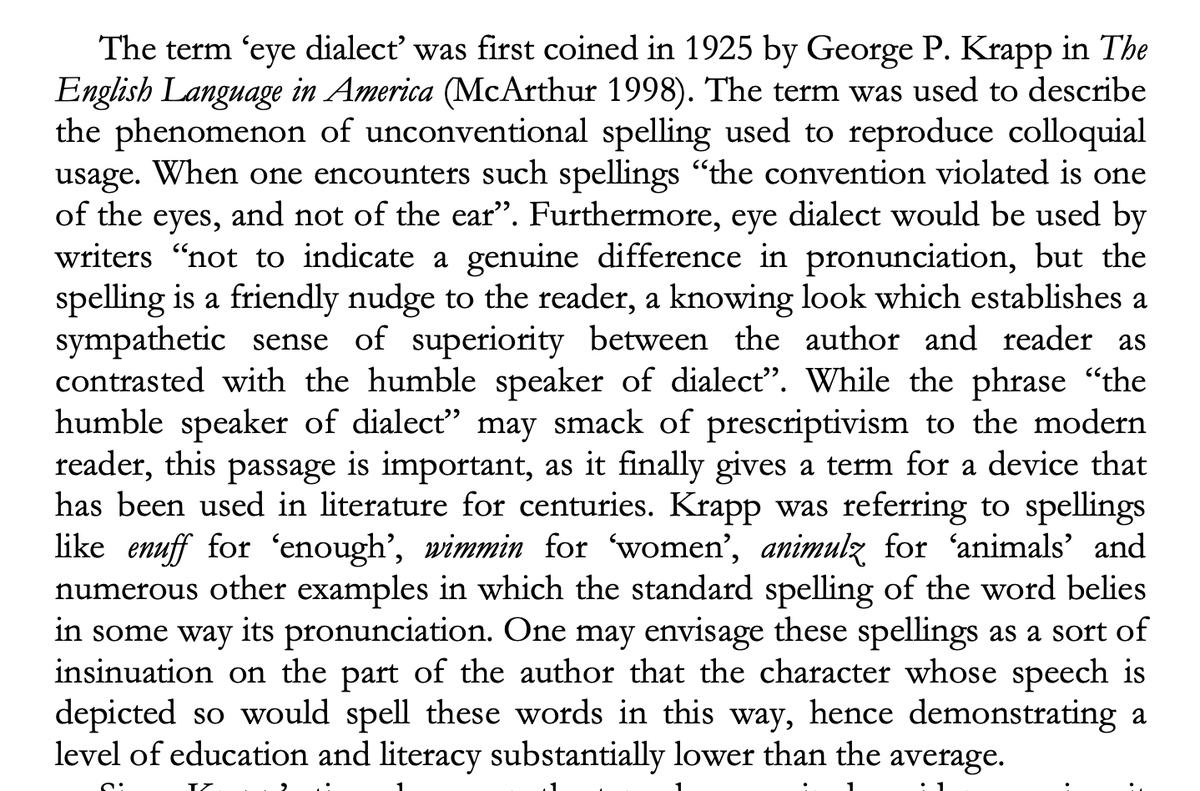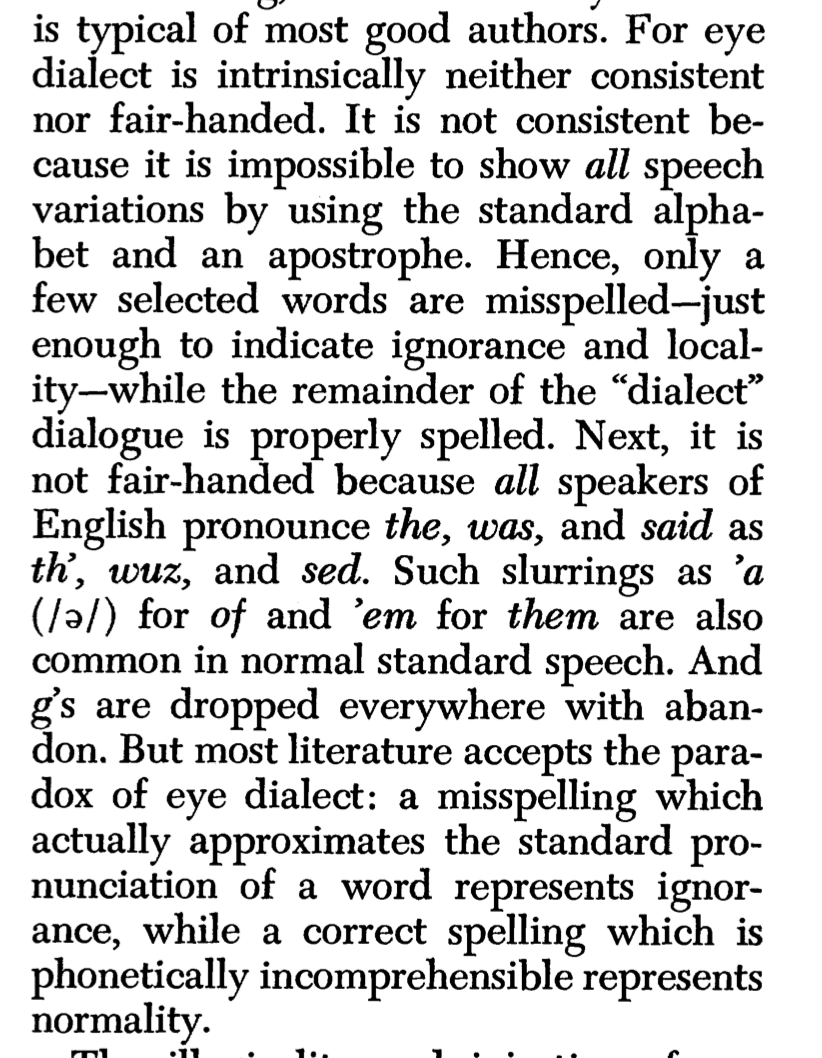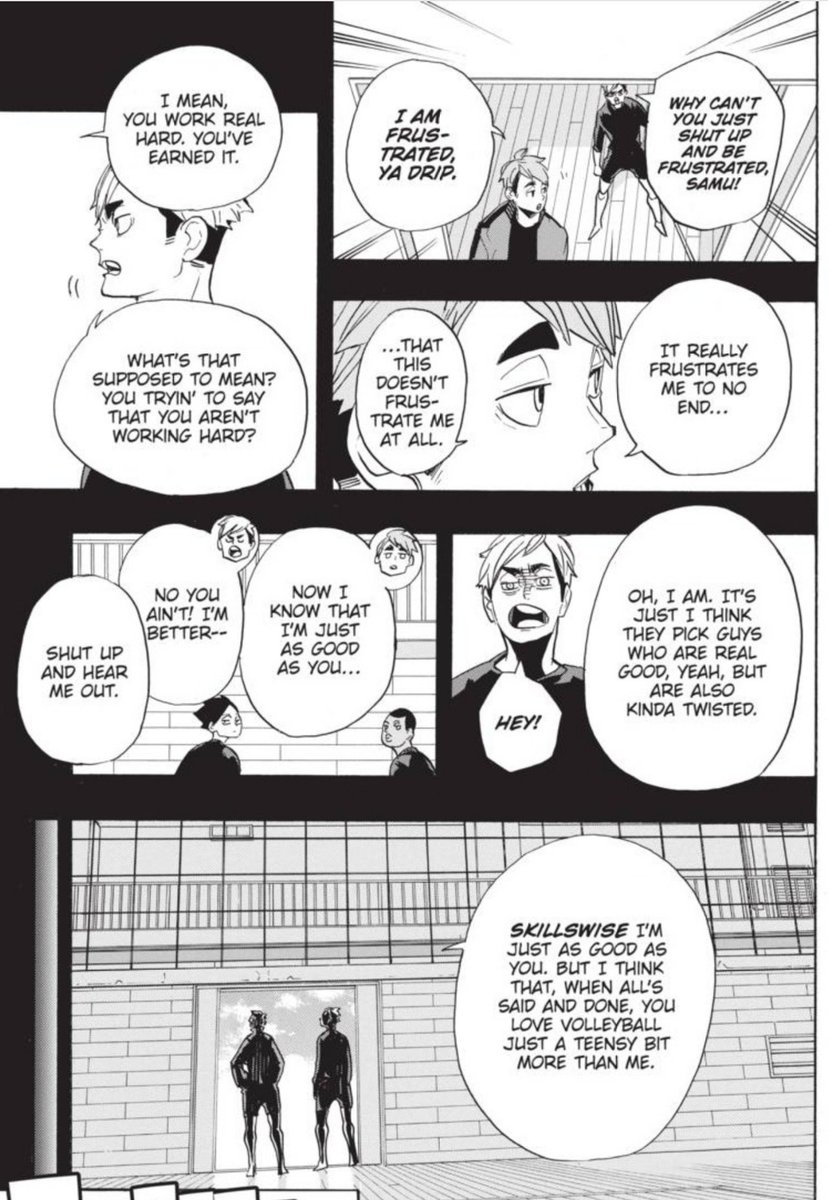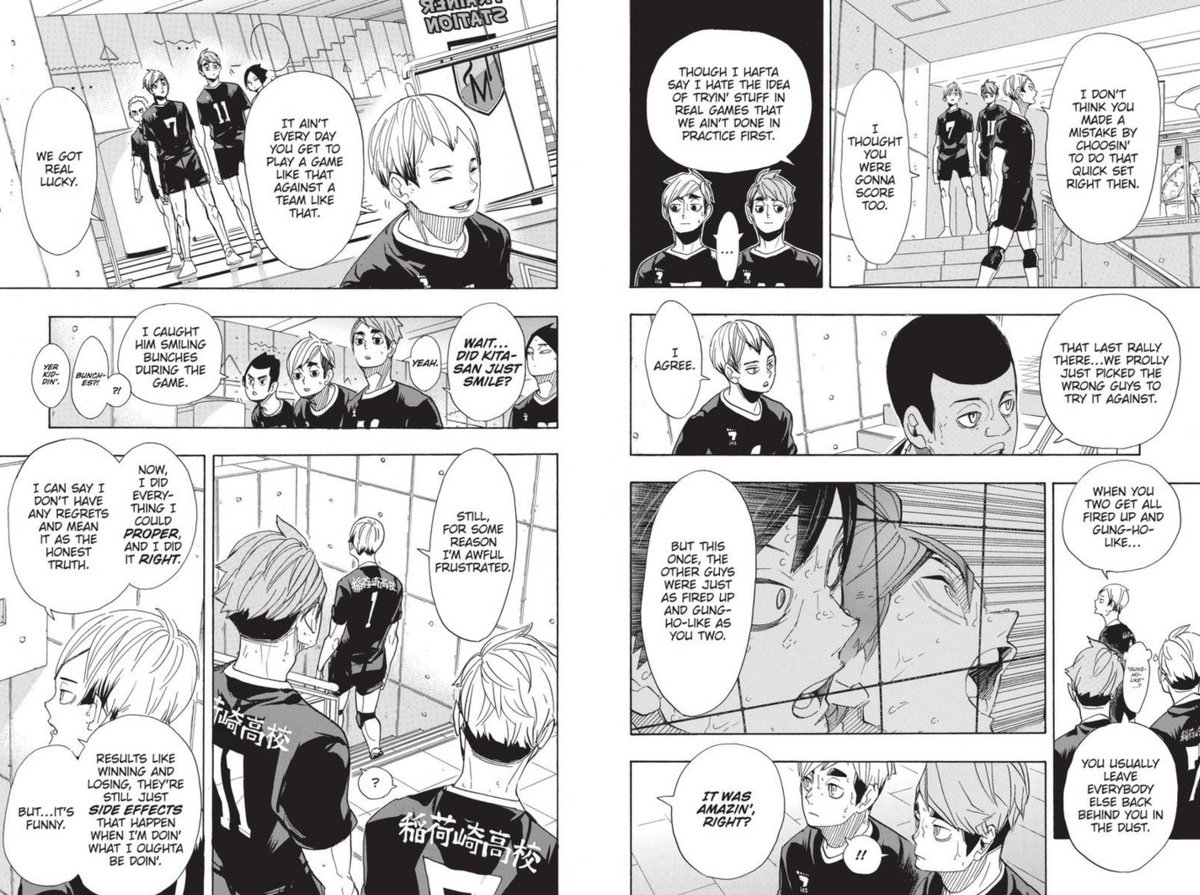this has been on my mind lately and i feel i’m seeing it become more widespread, so i want to talk a bit about writing accents/dialect in dialogue, specifically with regards to Inarizaki.
i’m referring to, for example, rendering a line like “You’re going down” into something like “Yer goin’ down” instead. you see this sort of dialect pop up in the official Jump translations for the manga and i see it a lot in fic
first off i want to make it very clear upfront that if you typically make the stylistic choice in your fic to write the Inarizaki boys’ dialect like this, this thread is not an indictment of your work. i respect all the hard work that fic writers do. your fic is valid!
what i do want to point out is that the use of dialect is just that: a stylistic choice. it is a choice that the Jump translator has used to represent the Kansai-ben dialect that the Inarizaki boys speak. it is not something you must replicate in your fic to be authentic/not OOC.
in fact, while the manga does it, the anime subs don’t, so as you can see: it’s a choice. and i think it is worthwhile to be aware that you can make that choice, and some of the reasons that you might consider.
the problem with translating Kansai-ben is simply that there is no 1:1 way to do so. translation is already a complex art (not a science!) that requires the translator to make many, many little decisions to bring out the nuances of the source language
the cultural context of reading Japanese dialogue in Kansai-ben, in a Japanese work, is not the same as reading a Southern US accent or a Cockney accent in English. i think it is worthwhile for writers in English to be aware of some of the issues surrounding the use of dialect
the kind of dialect use that we’re looking at here is also known as “eye dialect”, where “the convention violated is one of the eyes, and not of the ear.” (source: David Brett, "Eye Dialect: Translating the Untranslatable", 2009)
the earliest uses of eye dialect are irrevocably linked with representations of social class. Huck Finn was probably the first american novel to use dialect extensively. Dickens used it to distinguish his working class characters. Hagrid& #39;s “Yer a wizard, Harry” is also an example
it is difficult to dismiss the fact that eye dialect is inextricable from “socially ingrained linguistic prejudices” (a phrase i found in a paper as early as 1974, Jane Raymond Walpole’s “Eye Dialect in Fictional Dialogue”). and i think it is good for writers to be aware of this
as Walpole writes: “eye dialect is intrinsically neither consistent nor fair-handed.” the deliberate misspelling of selected words becomes a shorthand. and you do want to ask yourself, as a responsible writer, a shorthand for what?
non-standard spelling draws attention to itself. a writer’s job is to be discerning about why you want to draw attention to a thing, and when you use non-standard spelling, to do so with awareness as to why it is necessary in your writing.
i think it is helpful to understand the social implications when you do use non-standard spelling. there are also many places in the world where the use of eye dialect continues to be very loaded and used to mock or attack people of lower social classes.
let’s look at how Jump does it. i picked a couple of dialogue heavy pages to look at. there are a few “ya”s, dropped “g”s. run-on words like hafta, kinda, gonna. then there are expressions like “gung-ho-like”, “real good”, “awful frustrated”, “did everything i could proper”
as you can see, even in Jump there is a wide variety of ways used to express the Kansai-ben speech without using eye dialect in every line. those expressions like "real good" are not misspellings, but they are distinct nonetheless.
and again, these are stylistic choices. you don’t have to follow them. as mentioned, the anime subbers don’t. i do feel there are far fewer “ya” and “yer” in the manga than i encounter in fic, if you are using manga as your guideline.
in the case of the Inarizaki boys, i want to suggest you don’t need the dialect if you simply wish to convey they’re from Hyogo. we all already know that. that’s the beauty of fic. you don’t have to work as hard as the original author did to flesh out an OC.
there are also many, many other ways to characterise someone’s place of origin without dialect: memories, mannerisms, significant habits, even favourite foods, to name a few.
you may have other reasons to use the dialect. that’s fine, and i don’t want to tell you what to do. what i want is to illuminate some of the context surrounding the use of dialect in writing and translation, and to raise awareness that you have choices.
making informed, thoughtful choices will benefit you, your readers and wider fandom alike.
ok that& #39;s all! thank you for reading!
ok that& #39;s all! thank you for reading!

 Read on Twitter
Read on Twitter





